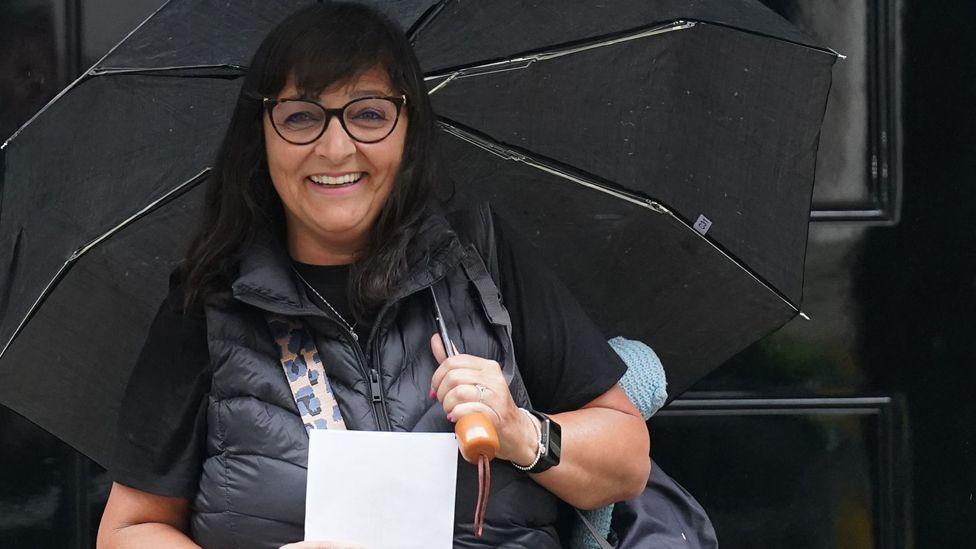Arena victim's mum relieved as bill enters Commons

Figen Murray has campaigned for the bill after her son's death in the 2017 Manchester Arena Attack
- Published
The mother of a Manchester Arena attack victim has celebrated the introduction into Parliament of "hugely important" public safety laws she has spent years campaigning for.
Ministers are to bring the Terrorism (Protection of Premises) Bill to the Commons for a first reading later.
Referred to as Martyn's Law in memory of one of the 2017 Manchester bomb victims Martyn Hett, the reforms require venues with a capacity of more than 200 to take steps to ensure they have a plan in place in case of an attack on their premises.
Martyn's mother, Figen Murray, said the bill's progress meant "we are one step closer to making public spaces safer for everyone".

Martyn Hett was one of 22 people killed in the Manchester Arena bombing during an Ariane Grande concert
Home Secretary Yvette Cooper said the reforms would help "protect staff and the public from terrorism and ensure we learn the lessons from the terrible Manchester Arena attack and the inquiry that followed".
She paid tribute to Ms Murray and her campaign team for working "tirelessly" to push for the law.
Ms Murray said Sir Keir had honoured his promise to introduce Martyn's Law, after the pair met the day before the UK general election in July.
"He said he would act quickly and he has," she said.

Figen Murray and her husband Stuart met Sir Keir Starmer before the election
The meeting came after Ms Murray walked 200-miles from the site of her 29-year-old son's death, alongside 21 other people at the Ariane Grande concert at Manchester Arena in 2017, all the way to London to campaign for Martyn's Law.
Under the draft legislation, all venues with a capacity of more than 200 people would be legally required to have plan to deal with an attack at their premises.
Other requirements at this level include training staff on "simple and low cost" procedures like identifying safe exit routes and locking doors and windows.
Venues with a capacity of more than 800 people will be subject to greater requirements, including measures like CCTV or security staff.
Brendan Cox, husband of murdered MP Jo Cox, and co-founder of Survivors Against Terror, said the introduction of the bill was a "major breakthrough".
"It will finally close the security loopholes that put us all at risk," he said.
“Survivors of terror attacks aren’t looking for sympathy - they are looking for change that makes it less likely that others will endure what they have."
'Commitment'
Security minister Dan Jarvis said the "guiding principle" behind Martyn's Law was to protect the public against "an enduring and complex threat picture".
He said: "I think it is very much needed. It is one of the [findings] that came out of the Manchester bomb inquiry. It has come about because of the inspiring campaign of Figen Murray and her campaign team in response to the tragic loss of life.
He added: "The guiding principle is around public safety against an enduring and complex threat picture.
"It's seven years now since the Manchester arena bomb, but the prime minister made a commitment a few weeks ago to Figen Murray, and we are honouring that commitment today."
Listen to the best of BBC Radio Manchester on Sounds and follow BBC Manchester on Facebook, external, X, external, and Instagram, external. You can also send story ideas to northwest.newsonline@bbc.co.uk, external
Related topics
- Published24 May 2024

- Published22 May 2024

- Published21 June 2024

- Published5 February 2024
